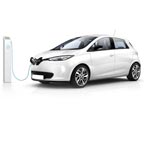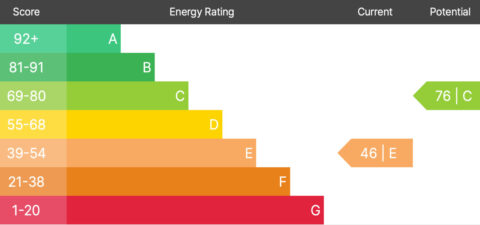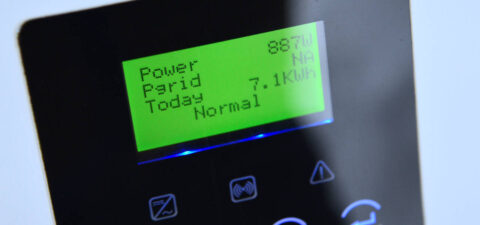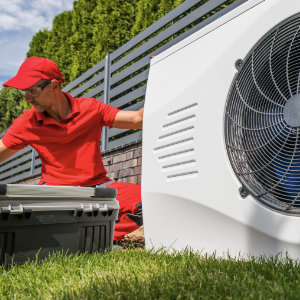We’ve just updated our UK energy companies fuel-mix database. The most striking thing is the sheer number of new energy suppliers – and, more worrying, those that have gone bust!
The energy supplier market seems to be awash with choice, with the number who claim to be 100% renewable going through the roof. Others seem to miraculously become super green energy providers overnight, after a simple name change. How come? Smoke and mirrors? It’s certainly looking that way.
What’s the difference between energy generators and suppliers?
Generating and distributing energy is a complex business. It involves physical stuff… power stations, wind turbines, hydro schemes, solar arrays, biomass, and distribution networks. They provide all the complex capital-intensive infrastructure side of building and maintaining electricity generation and energy networks.
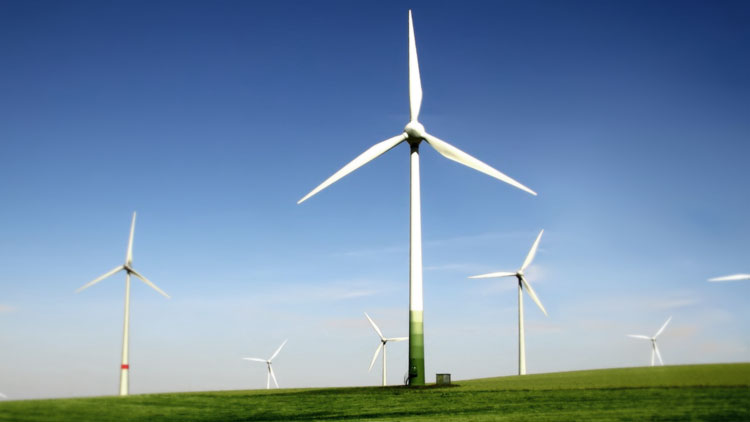
The size and scale of these energy generators vary: From a farmer with a medium-sized wind turbine; A community group with a few solar panels; to EDF energy with a fleet of nuclear power stations. These bigger energy companies, and renewable focused companies such as Ecotricity and Good Energy, operate as both generators, building and maintaining infrastructure – and energy suppliers, servicing and selling their energy directly to customers.
Why are there so many energy suppliers?
Most energy suppliers, especially the newer ones, don’t get their hands dirty in energy generation as such. They act as intermediaries, energy traders, shop fronts, glossy branding exercises, customer metering and billing portals, or even white labelled web apps. Buying in energy and doing deals within the wholesale energy market, or direct with generators. Hedging their bets, then flogging this energy back to us, whilst hopefully making a profit. Hence, it’s somewhat easier to become an energy supplier. As you never have to invest in generating watts. Suppliers are ‘retailing’ energy, rather than ‘manufacturing’ or even ‘delivering’ the goods.
How can an energy supplier become 100% green overnight?
Okay, so many of the UK’s energy suppliers (retailers) have no energy-generating infrastructure e.g. windmills, solar farms, biomass burners or hydro generation to worry about. This means it’s easy for them to simply flip to green generated electricity overnight. Just purchase a load of renewable green energy from the wholesale market, then sell this as a green eco energy tariff – sounds great. Environmentally conscious consumers feel good. Their green energy is at a competitive price. The energy supplier ticks all its Corporate and Social Responsibility (CSR) boxes.
The problem is that this so-called renewable energy may not be that green, it could be rebadged fossil fuel-generated brown energy. How?

Renewable Energy Guarantee of Origin certificates (REGOs) can change the colour of energy?
REGOs is a mechanism (certificates) that Ofgem – UK’s energy regulator – issues as proof of renewable generation. Unfortunately, energy suppliers can source these REGOs without actually purchasing the electricity they relate to, or put it another way, energy suppliers/generators who have already used this power to supply their customers can sell their surplus REGOs.
These purchased REGOs can then be purchased by energy suppliers to offset their brown energy in their fuel-mix reporting, turning brown energy to green… alchemy!
The secondary trading of these REGOs has become commonplace, exploiting a loophole in the fuel-mix reporting rules. You can buy REGOs for just a few pence per MWh and miraculously greenwash your brown electricity, without ever buying a single watt of renewable energy. Fantastic, a feelgood eco marketing opportunity opens up!
An interesting example of this was First Utility who became Shell Energy, then suddenly made their 700,000 customers 100% renewable. Amazing!
What’s the problem with REGOs
The real issue with REGOs is consumer trust with the energy sector. Having a pop at energy companies appears to be a national pastime. They’re either ripping consumers off, making too much money or going bust. Now we can’t even believe what’s a real green energy tariff – this simply isn’t on.
A situation where energy supply companies can green-up their energy without buying any renewable energy seems madness. This completely undermines those energy companies who are genuinely committed to investing in renewable energy generation infrastructure – and are prepared to get their hands dirty. In stark contrast to the cynical suppliers playing the energy market whilst pretending to be ‘touchy-feely eco-warriors’
Fuel-Mix Disclosure should reflect real-world renewable generation.
Fuel Mix Disclosure should include energy acquired through renewable generation purchased, not those acquired in the secondary REGO market. This is a problem for Ofgem to sort, as real ethical renewable energy generation companies are at a distinct disadvantage. What is their USP if everyone’s gone green overnight?
At the moment we have no way of knowing which companies are genuinely 100% renewable and investing in decarbonising our economy. The Fuel Mix data being published is becoming increasingly meaningless.
Energy conservation matters
Hopefully, the UK is going full-speed-ahead with decarbonising its energy sector. I hope those playing these cynical green marketing tactics, start investing in new renewable generation infrastructure, as well as the smart grid tech. They also need to promote, the often-forgotten energy conservation measures, although these are frequently overlooked as there isn’t money to be made. After all, the greenest kilowatt is the one that isn’t used.
See the most efficient electricals
My advice would be to choose an energy company that invests directly in new renewable generation facilities. Creating new renewable capacities, such as Ecotricity or Good Energy.
See the most energy efficient...
← SWIPE →
Please note: We do not publish sponsored content or guest posts that are trying to promote specific products or brands. If you have a genuine newsworthy story you would like to share please do comment or email.








